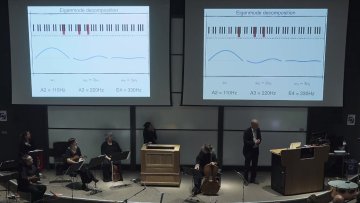Multiscale Modeling of Layered Anisotropic Stratified Turbulence
Abstract
Stably density stratified shear flows arise widely in geophysical settings. Instabilities of these flows occur on scales that are too small to be directly resolved in numerical simulations, e.g., of the oceans and atmosphere, yet drive diabatic mixing events that often exert a controlling influence on much larger-scale processes. In the limit of strong stratification, the flows are characterized by the emergence of highly anisotropic layer-like structures with much larger horizontal than vertical scales. Owing to their relative horizontal motion, these structures are susceptible to stratified shear instabilities that drive spectrally non-local energy transfers. To efficiently describe the dynamics of this ``layered anisotropic stratified turbulence'' regime, a multiple-scales asymptotic analysis of the non-rotating Boussinesq equations is performed. The resulting asymptotically-reduced equations are shown to have a generalized quasi-linear (GQL) form that captures the essential physics of strongly stratified shear turbulence. The model is used to investigate the mixing efficiency of certain exact coherent states (ECS) arising in strongly stratified Kolmogorov flow. The ECS are computed using a new methodology for numerically integrating slow--fast GQL systems that obviates the need to explicitly resolve the fast dynamics associated with the stratified shear instabilities by exploiting an emergent marginal stability constraint.



